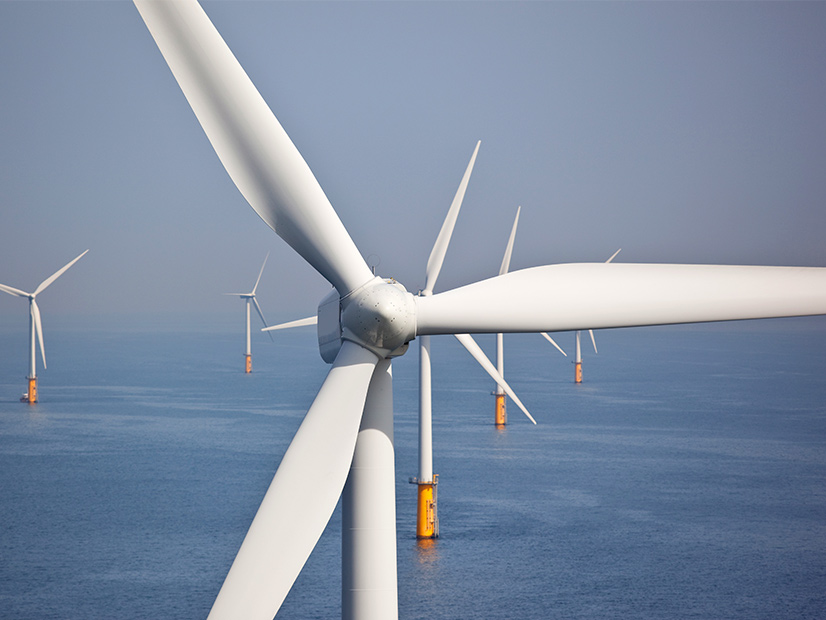New Jersey’s Board of Public Utilities has approved a request by offshore wind developer Invenergy to delay until Dec. 20 the enforcement of its contract to give the developer time to find an economically viable turbine.
The board accepted the developer’s Motion for a Stay of Order to delay enforcement of the January 2024 agreement that endorsed the developer’s 2,400 MW Leading Light Wind (LLW) Project in the state’s third solicitation. Because of the stay, Invenergy temporarily will avoid making “significant financial obligations” required by the contract.
The company’s July petition said it initially planned to use turbines from one of three manufacturers — GE Vernova, Siemens Gamesa Renewable Energy (SGRE) or Vestas. But changes in the cost or size of their turbines mean Invenergy’s project no longer would be economically feasible if they were used.
Invenergy said it needs time to find a new turbine supplier. Their petition argued that without the stay, the project would have to move ahead without a clear understanding of costs, putting in jeopardy the “significant environmental and economic benefits” of the project.
The Sept. 25 board order unanimously approving the stay largely agreed.
“The public’s interest, in the context of the requested stay, is in reaping the benefits of the LLW Project, or at least preserving the status quo and the opportunity to do so,” the order said.
“Denial would result in Invenergy and the LLW Project having insufficient time to engage in meaningful negotiations with wind turbine manufacturers and the ability to identify in a timely manner a cost-effective wind turbine option, a necessary element of an OSW project,” the order states. Without the stay, it added, “Invenergy must contemplate whether it is possible to continue development of the LLW Project, given the deterioration of the LLW Project economics.”
‘Critical’ to the State
The BPU decision comes almost a year after Danish developer Ørsted pulled the plug on the state’s most advanced project, Ocean Wind 1, awarded in the state’s first solicitation in 2019, and the sister project Ocean Wind 2, awarded in the second solicitation in 2021. Ørsted at the time said the projects no longer were economically viable. Gov. Phil Murphy (D) since has scrambled to accelerate New Jersey’s offshore wind program to make up the two years lost by abandonment of the projects. (See UPDATED: Ørsted Cancels Ocean Wind, Suspends Skipjack.)
The BPU is evaluating three bids submitted in July for its fourth solicitation, with bid selection expected in December. In May, Murphy accelerated the timeline for the state’s fifth solicitation, with the process expected to begin in the second quarter of 2025 (See 3 OSW Proposals Submitted to NJ.)
BPU President Christine Guhl-Sadovy said after the 4-0 vote the state is “committed …. to our offshore wind goals.”
“It is critical towards our fight, and to mitigate climate change, and I think that this action will allow Invenergy to find a suitable wind turbine supplier,” she said. “We look forward to them delivering on the project.”
Commissioner Zenon Christodoulou said he shared Guhl-Sadovy’s optimism. “I’m fully confident that they’ll be able to work through these little hurdles and make sure that an industry which has taken over in many places in the world will apply here in New Jersey as well,” he said.
Shifting Options
Invenergy said it developed its proposal with a “turbine agnostic” approach and the products of all three manufacturers appeared viable at the time it submitted its project proposal to the BPU in August 2023. But the developer soon deemed the Vestas turbines “unsuitable for the site” due to “cost and technical factors.”
Three weeks after the board approved the project in January, GE announced it would not produce the turbine Invenergy planned to use. An Aug. 8 filing in the case by the New Jersey Division of Rate Counsel said the developer had planned to use GE’s Haliade-X 18 MW turbine, but the manufacturer in February announced in a financial filing that it had refocused its business and instead would manufacture the smaller Haliade-X 15.5 MW-250 turbine.
In June, SGRE “notified Invenergy that it was substantially increasing the cost of its turbine offering,” which meant the developer no longer had a “viable turbine supplier,” Invenergy said in its petition.
“The stay … is in the public interest in that it will permit the company the time needed to address these unforeseen circumstances in a thorough and thoughtful manner,” the developer’s petition said, adding that Invenergy “remains committed to bringing the economic and environmental benefits of offshore wind energy” to New Jersey.
Without the stay, the BPU contract would require Invenergy to pay the agency $120 million in security commitments and “multiple other funding commitments,” the New Jersey Division of Rate Counsel said in its Aug. 8 filing. If the project did not meet those commitments, the BPU could modify the price of Offshore Wind Renewable Energy Certificates, the filing said.
The ratepayer advocate said it was not opposed to Invenergy’s petition but had concerns about the board’s “frequent post-award alterations to the Board’s offshore wind solicitation process.”
“The Board’s competitive solicitation process must ensure all bidders are subject to the same rules,” the filing said. “Changing the bidders’ requirements following the close of bidding undermines the competitive process.”
Financial Reporting
The board’s decision comes three weeks after the board approved a slight change in the contract requirements placed on another developer selected in the third solicitation — Attentive Energy, which is developing a 1,342 MW project.
The BPU on Sept. 4 approved the developer’s request to file unaudited financial statements quarterly, rather than audited statements, and to submit them within 60 days of the end of the quarter. The BPU ruled that annual audited financial reports must be submitted 120 days after the end of the year, and not after 180 days, as the developer suggested.



